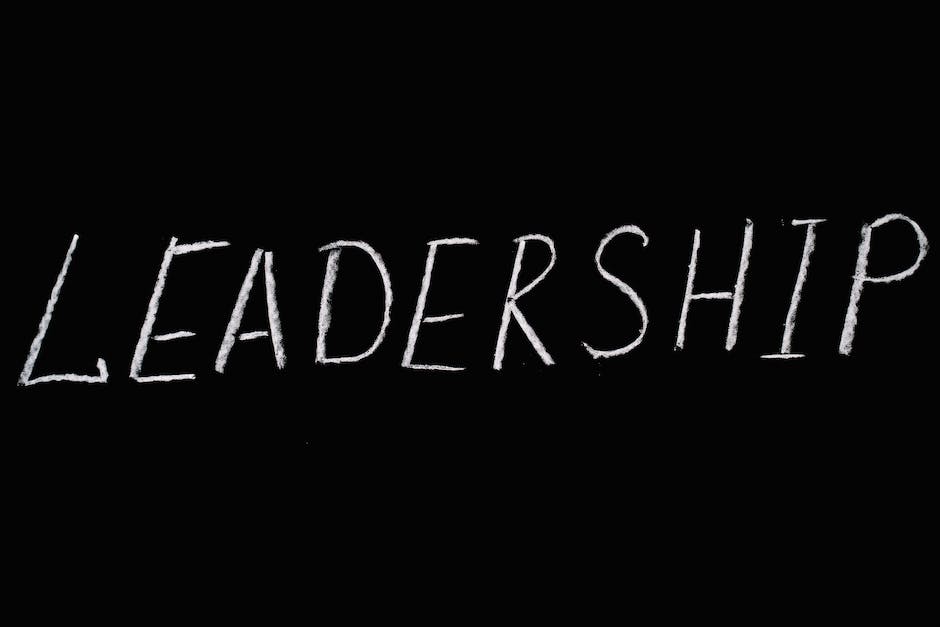In the dynamic world of leadership, a common denominator among effective leaders is not just their technical competence, but the mastery of essential soft skills. These non-technical, interpersonal abilities tend to be undervalued, yet they often make the difference between a good leader and a great one. Leaders excel not merely through their knowledge and years of experience in a field, but through their exceptional ability to communicate, empathize, solve problems, adapt to various situations, and build a cohesive team. Understanding, identifying, and improving these soft skills are primary determinants for successful, impactful leadership.
Understanding the Importance of Soft Skills in Leadership
Definition and Distinction of Soft Skills in Leadership
Soft skills, as opposed to hard skills, generally refer to the set of non-technical, interpersonal, and communication abilities that assist in navigating social interactions and forging relationships. They extend beyond mere academic knowledge or technical expertise, which define hard skills, to encompass emotional intelligence, critical thinking, empathy, adaptability, and conflict resolution skills among others. When applied to leadership, soft skills highlight the humanistic traits required to inspire, motivate, and manage individuals or teams. They aid a leader in connecting with others on an empathic level, ensuring that organizational goals align with individual capacities, ambitions, and welfare.
The Role of Soft Skills in Leadership
In the realm of leadership, the importance of these soft skills can’t be overemphasized. When leaders exhibit excellent interpersonal skills such as active listening, empathy, and clear communication, they create an environment where employees feel understood, validated and appreciated. This positive environment fosters mutual respect, loyalty, and eventually increases productivity and innovation.
Decisive problem-solving, one of the pivotal soft skills, facilitates quick decision-making through systematic analysis and innovative thinking, eliminating haphazard solutions that might harm the organization’s trajectory. Meanwhile, adaptability, another crucial soft skill, enables leaders to pivot strategies in response to changing circumstances, thus endorsing fluidity and resilience in the face of adversity.
Soft Skills and Different Leadership Scenarios
In various leadership scenarios, the relevance of these skills becomes even more predominant. For instance, during a corporate crisis, a leader with robust soft skills can effectively manage the situation by instilling calm, encouraging open communication, and leveraging strategic thinking to navigate the crisis. On the other hand, when introducing organizational change- a scenario often met with resistance- a leader equipped with soft skills like empathy and emotional intelligence can anticipate and manage the reactions of team members, ensuring a smoother transition process.
Moreover, in goal-setting and performance appraisal scenarios, soft-skilled leaders can set realistic, achievable goals by interrelating the organization’s objectives with individual potential. They can also provide constructive feedback respectfully and considerately, instilling a culture of growth and continuous learning.
The Crucial Role of Soft Skills in Leadership
Soft skills are vital for effective leadership, and as such, they are skills that both potential and current leaders should strive to nurture and improve. There are several ways to develop these skills, such as participating in active listening exercises, embarking on team-building activities, practicing mindfulness, and accepting and learning from constructive criticism. These efforts to hone your soft skills may seem daunting, but consider it a long-term investment that will ultimately enhance your personal and professional life.
These invaluable soft skills are what separates a good leader from a great one, despite hard skills often being the cornerstone of professional prowess. Therefore, soft skills are non-negotiable for anyone assuming or aspiring to a leadership role.

Identifying Key Soft Skills for Leadership
Exploring the Importance of Communication in Leadership
There’s no denying the importance of robust communication skills in leadership. Leaders need to be adept at transmitting their visions, intentions, and expectations to their teams. However, communication isn’t merely about the verbal or written message, but its presentation and the non-verbal queues accompanying it. Elements like eye contact, bodily posture, and facial expressions also communicate volumes. For example, no matter how inspirational a leader’s speech may be, it won’t have the desired impact if delivered in a slouched posture and with a lack of enthusiasm visible in their eyes.
Empathy in the Leadership Role
Empathy is another crucial soft skill for leadership. This involves the ability to understand and share the feelings of others. In effect, it’s about stepping into another’s shoes and viewing issues from their perspective. A leader with high empathy can foster a supportive work environment, which can result in increased team morale, improved worker satisfaction, and reduced turnover rates. For instance, if an employee is going through a tough phase, an empathetic leader would provide flexibility and support rather than strictly adhering to the rules.
Problem-Solving Abilities in Leaders
Problem-solving is a leadership soft skill that entails the ability to identify and define problems, develop possible solutions, select the best approach, and implement it. Leaders with strong problem-solving capabilities are greatly valued due to their ability to navigate various situations, from inter-team conflicts to process inefficiencies. For example, a leader may identify a consistent delay in product delivery and devise a solution to streamline the process leading to timely deliveries.
The Need for Adaptability in Leadership
Adaptability is an essential leadership trait in today’s fast-paced business environment. An adaptable leader has the willingness and ability to alter strategies or approaches when necessary, to adjust to new situations, ideas, and advancements swiftly. If a project is deviating from its original plan due to unforeseen circumstances, an adaptable leader can evaluate the situation, make necessary changes, and guide the team towards the desired goals without being strictly stuck to the original plan.
Building a Strong Team as a Leader
Team-building ability is indispensable for a successful leader. Leaders need to encourage open communication, create an atmosphere of cooperation, and promote harmony among team members. It also involves delegating tasks effectively, recognizing individual strengths, and encouraging team members to work collaboratively towards a common goal. For instance, a leader who acknowledges the unique skills of each team member and delegates tasks accordingly can foster an environment where members feel valued and work cooperatively, boosting overall team productivity.
Striking a Balance in Key Leadership Skills
Leadership is not purely about hard skills; having the right blend of soft skills is equally critical. An effective leader is one who knows how to strike a balance among these skills. For instance, while empathy is a key facet of leadership, leaning into it excessively to avoid tough decisions can potentially lead to inefficiencies. Conversely, a leader who is exceptional at problem-solving but lacks empathy could end up disregarding the team’s feelings or circumstances while pushing for solutions. Therefore, it’s crucial for leaders to utilize a balanced approach – to tune their skills finely according to the situation and team needs.

Developing and Improving Leadership Soft Skills
Unpacking the Soft Skills Utilized in Leadership
Soft skills tie into the interpersonal elements of leadership, enabling a leader to build strong relationships, inspire their teams, and manage situations more dynamically. These skills encompass traits such as emotional intelligence, clear communication, adaptability, teamwork, problem-solving, and empathy. When leaders effectively groom these soft skills, it paves the way for stronger team bonding, higher productivity levels, a surge in morale, and ultimately, a healthier and more positive workplace culture.
The Importance of Self-Reflection
Self-reflection plays a critical role in the improvement of leadership soft skills. Through self-reflection, leaders gain insight into their strengths, weaknesses, biases, and ways they can improve. Adopting regular self-reflection can help leaders identify which soft skills they need to work on. Tools such as journaling, performance self-evaluations, or utilizing reflection models can provide a structured approach to self-reflection.
The Role of Feedback in Leadership Development
Seeking and receiving feedback from colleagues, employees, and peers is another effective way to develop and enhance leadership soft skills. Constructive feedback can bring attention to blind spots and areas for improvement that a leader may not have been aware of. Active listening, showing appreciation, and applying the feedback are necessary steps in this process.
Commitment to Continuous Learning
Continuous learning is crucial for leaders who aim to improve their soft skills. This may involve attending workshops, seminars, reading books, or subscribing to relevant publications and podcasts. Regular engagement with diverse sources and perspectives can nurture soft skills such as adaptability, problem-solving, and emotional intelligence.
Utilizing Mentorship Opportunities
Mentorship programs are excellent resources that offer personalized guidance in leadership development. Engaging with a mentor can help leaders refine their soft skills through observation, discussion, and active practice. Mentors can provide direct feedback, suggestions, and share their experiences, aiding leaders in gaining new perspectives and better understanding their leadership style.
Practical Strategies for Building Leadership Soft Skills
There are many practical strategies and exercises for developing leadership soft skills. Role-play exercising can be beneficial in improving communication, problem-solving, and decision-making skills. Activities involving teamwork can foster cooperation and collaboration. Additionally, practicing mindfulness and emotional awareness can enhance emotional intelligence.
Creating an Effective Leadership Style with Soft Skills
Leadership isn’t just about leading; it’s an ongoing journey of self-improvement, learning, and being open to feedback. By focusing on these aspects, you can sharpen your leadership skills and, over time, make them an intuitive part of your leadership style. This committed journey can lead to a more influential and effective leadership approach.

Incorporating Soft Skills into Everyday Leadership Practice
Understanding the Importance of Soft Skills for Leaders
Being a successful leader in the corporate world isn’t just about having technical prowess; it’s more than that. Soft skills, such as empathy, communication, teamwork, adaptability, and problem-solving skills, play a crucial role in leadership. These skills complement the ‘hard’ skills related to specific roles, like strategic planning or project management.
With strong soft skills, leaders can communicate and connect effectively with their team members, creating a synergistic work environment that fosters creativity, productivity, and employee engagement. This, in turn, builds a dedicated and loyal team that underlines optimal performance.
Engaging with Team Members
To incorporate soft skills into the regular interaction with team members, a leader should focus on actively listening, fostering open communication, giving constructive feedback, and demonstrating appreciation. Active listening requires undivided attention while providing feedback and demonstrating empathy. This will show the team members that their thoughts and inputs are valued and appreciated, thereby improving their motivation and productivity levels.
Open communication entails creating a platform where team members can voice their ideas, concerns, and suggestions without fear of judgment or retaliation. To do this, a leader has to foster trust, honesty, and transparency.
Dealing with Conflict
Conflict is often unavoidable within a team. A leader with strong soft skills can turn these into opportunities for growth. Effective conflict resolution entails understanding the root cause of the issue, being impartial, expressing empathy, encouraging open dialogue, and coming up with a fair resolution.
Making Decisions
Decisiveness is a crucial leadership skill. But in addition to making firm decisions, a leader should also consider the inputs of their team members. This promotes a feeling of inclusivity, respect, and validation. Diverse perspectives can also lead to innovative solutions.
Managing Projects
Project management requires both hard skills, like planning and risk assessment, and soft skills, like communication and teamwork. Effective project leaders actively communicate with team members, ensuring everyone understands their roles, responsibilities, and deadlines. They also facilitate collaboration, support problem-solving efforts, and provide motivation and positive reinforcement to team members.
The Power of Practice and Consistency
Consistency helps establish trust, while practice leads to mastery. As such, leaders should always strive to improve their soft skills, committing to habits that promote active listening, open dialogue, empathy, and collaboration. Additionally, they should consistently embody these attributes, always demonstrating their commitment to these principles in every interaction and decision they make.
Molding a softer leadership style requires time and patience, but the rewards in terms of team morale, productivity, and overall success are invaluable. Consistency and practice will refine these softer elements of leadership, leading to a more harmonious and functional work environment.

Mastering the soft skills of leadership requires consistent practice and conscious implementation in everyday leadership tasks. Whether it is dealing with conflicts, making key decisions, engaging with team members, or managing projects, every activity presents an opportunity to exercise and sharpen these skills. Embracing this approach shifts the paradigm of leadership from just business as usual, to a more engaging, empathetic, and effective style. In a nutshell, the role of soft skills in leadership is as compelling as it is transformative, ushering in an effective leadership model primed for positive influence and lasting success.

